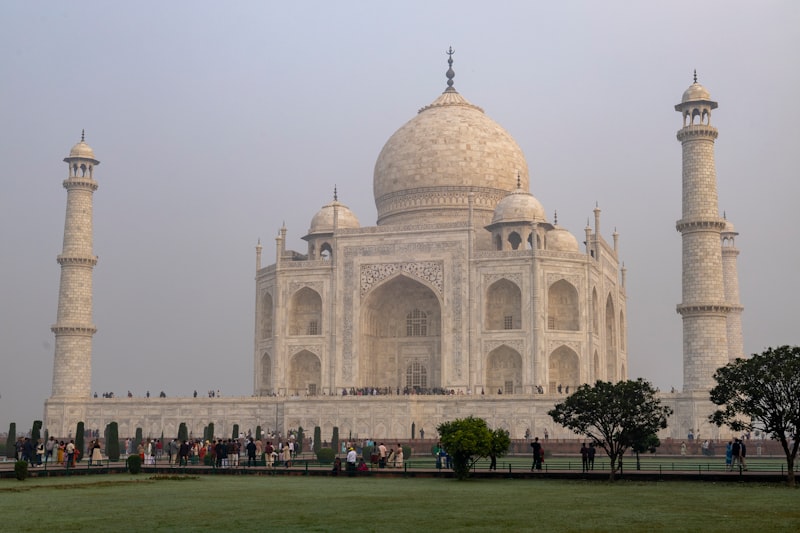Imagine stepping into a futuristic cityscape where technology blurs the line between human and machine, or traversing galaxies where civilizations clash amidst cosmic phenomena. Sci-fi books with complex worlds transport readers beyond the ordinary into the extraordinary, challenging perceptions and opening doors to what could be.
One of the classics in this genre is “Dune” by Frank Herbert. Set on the desert planet of Arrakis, it unfolds a political and ecological saga where noble houses vie for control of a resource vital to the universe’s economy. Herbert’s richly imagined world is as much a character as the protagonists themselves, with its harsh landscapes and intricate social structures.
For those craving cyberpunk vibes, William Gibson’s “Neuromancer” is a must-read. This seminal work introduces the gritty sprawl of “the Matrix,” not to be confused with the film, where hackers navigate virtual realities and corporate espionage blurs the lines between reality and illusion. Gibson’s world-building feels eerily prescient even decades after its publication.
If you prefer a blend of history and speculative fiction, Octavia Butler’s “Parable of the Sower” offers a haunting vision of a near-future America ravaged by societal collapse and environmental chaos. Butler’s protagonist navigates a landscape where resilience and hope are essential commodities in a world torn apart by climate change and economic disparity.

Ready to explore new dimensions of storytelling? These sci-fi books with complex worlds are more than narratives; they are gateways to alternate realities where the limits of human imagination know no bounds. Whether you’re drawn to dystopian futures, space operas, or cyberpunk intrigue, each book invites you to ponder what lies beyond the stars and within ourselves.
Unraveling Multiverses: Top Sci-Fi Books for Exploring Complex Realities
-
“Dark Matter” by Blake Crouch: This gripping tale follows physicist Jason Dessen as he navigates through various multiverses to find his way back home, exploring the consequences of choices and paths not taken.
-
“The Man in the High Castle” by Philip K. Dick: Set in an alternate history where the Axis powers won World War II, this novel delves into a multiverse where different versions of reality coexist, prompting reflection on the nature of freedom and destiny.
-
“The Three-Body Problem” by Liu Cixin: This Hugo Award-winning trilogy introduces readers to the mind-bending concept of the “Dark Forest” universe, where civilizations across different multiverses engage in a cosmic game of survival and annihilation.
-
“The Long Earth” series by Terry Pratchett and Stephen Baxter: In a world where humanity discovers the ability to step into parallel Earths, this series explores the implications of unlimited exploration and colonization across an infinite number of worlds.
-
“The Expanse” series by James S.A. Corey: Although primarily a space opera, this series delves into the discovery of an ancient alien protomolecule that reveals the existence of multiverse-like dimensions, challenging humanity’s understanding of reality and its place in the universe.
-
“All Our Wrong Todays” by Elan Mastai: Following the protagonist through a botched time-travel experiment that creates diverging timelines, this novel explores the consequences of altering the past and the complexities of existence in multiple realities.
-
“The Fold” by Peter Clines: A scientific experiment gone awry leads to the discovery of a teleportation device that opens doorways to parallel universes, revealing terrifying consequences and ethical dilemmas.
-
“The City in the Middle of the Night” by Charlie Jane Anders: Set on a planet with starkly contrasting environments, this novel explores societal divisions and the discovery of ancient technology that connects humanity to other multiverses.
-
“Recursion” by Blake Crouch: Known for his exploration of alternate realities, Crouch’s novel dives deep into the concept of memory and its manipulation across multiple timelines, blurring the lines between past, present, and future.
-
“The Quantum Thief” by Hannu Rajaniemi: This novel combines hard science fiction with complex storytelling, exploring a future where individuals can shift between different multiverses, each governed by its own set of physical laws and societal norms.
Navigating Galactic Politics: Must-Read Sci-Fi Novels of Intricate Worlds

In the vast expanse of science fiction literature, few themes capture the imagination quite like galactic politics. From sprawling empires to intricate alliances, these narratives delve deep into the complexities of governing vast star systems and alien civilizations. Imagine standing at the helm of a starship, faced with decisions that could sway the fate of entire galaxies. Such is the essence of these must-read sci-fi novels that masterfully blend political intrigue with futuristic technology and interstellar adventure.
One of the cornerstone novels in this genre is Isaac Asimov’s “Foundation” series. Set in a future where the Galactic Empire faces inevitable decline, Asimov weaves a tale of Hari Seldon, a mathematician who predicts the fall of civilization and seeks to shorten the ensuing dark age through psychohistory. The series unfolds across millennia, exploring the rise and fall of empires and the manipulation of social forces on a galactic scale.
For those intrigued by morally ambiguous characters navigating treacherous political waters, Frank Herbert’s “Dune” offers a rich tapestry of intrigue and power struggles. Set on the desert planet of Arrakis, the story follows the noble houses vying for control of the most valuable substance in the universe, spice melange. With its blend of political maneuvering, ecological themes, and mysticism, “Dune” stands as a classic in the genre.
In Ann Leckie’s “Ancillary Justice,” readers encounter a unique perspective on power dynamics within a vast empire. The novel follows Breq, a former starship AI now inhabiting a single human body, as she seeks revenge against the ruler who betrayed her. Leckie’s exploration of identity, loyalty, and the consequences of imperial conquests offers a fresh take on galactic politics.
Navigating these intricate worlds of sci-fi isn’t just about exploring future societies—it’s about reflecting on our own. These novels challenge readers to consider the implications of power, governance, and the often-unforeseen consequences of our actions. Whether you’re a seasoned sci-fi enthusiast or a newcomer to the genre, these must-reads promise to transport you to galaxies far, far away, where the stakes are high, and the political landscapes are as vast as the stars themselves.
Beyond Borders: Exploring Dystopian Universes in the Best Sci-Fi Literature
Imagine stepping into a world where oppressive regimes reign supreme, where technology has both liberated and enslaved humanity, or where environmental catastrophes have reshaped the planet beyond recognition. These are the dystopian landscapes crafted by visionary authors who dare to ask, “What if?” Their narratives serve as cautionary tales, prompting readers to contemplate the consequences of unchecked power, scientific advancement, and societal complacency.
Take George Orwell’s timeless classic, “1984,” for instance. Orwell paints a bleak picture of a totalitarian regime where surveillance is omnipresent, individuality is suppressed, and truth itself is manipulated. Through Winston Smith’s journey, readers are confronted with the chilling prospect of a world where freedom of thought is a luxury few can afford.
In contrast, Aldous Huxley’s “Brave New World” presents a dystopia where technological progress and hedonistic pursuits have led to a superficially harmonious society. Yet, beneath the facade of contentment lies a disturbing truth of conformity and emotional emptiness, where humanity has sacrificed genuine connection for shallow pleasures and societal stability.
These dystopian worlds resonate because they extrapolate current trends and amplify them to extremes, forcing us to examine our own world through a distorted yet revealing lens. They challenge us to consider the ethical implications of scientific breakthroughs, the fragility of democracy, and the delicate balance between progress and humanity’s inherent flaws.
As readers journey through these dystopian universes, they are not merely passive observers but active participants in a thought-provoking exploration of what it means to be human. Each novel invites us to reflect on our present choices and contemplate the potential futures we may unwittingly be shaping.
From Cybernetics to Consciousness: Dive into the Most Complex Sci-Fi Realms
Imagine a world where machines not only think but also feel and understand emotions—a realm where cybernetics and consciousness intertwine in the most intricate ways. Science fiction has long explored these themes, pushing the boundaries of what we perceive as possible. It’s not just about robots performing tasks anymore; it’s about artificial intelligences grappling with existential questions, seeking meaning in their existence.
In these sci-fi realms, cybernetics represents the fusion of human biology with advanced technology. It goes beyond mere prosthetics or enhancements to delve into the realm of neural implants that augment cognition or emotional responses. Characters in these narratives often find themselves at the crossroads of humanity and machinery, questioning where consciousness truly resides.
The exploration of consciousness is perhaps the most profound aspect of these narratives. What makes us human? Can a machine develop self-awareness? These are the questions that echo through the pages of sci-fi novels and reverberate in blockbuster films. Authors and filmmakers paint vivid landscapes where AI entities struggle with identity crises or embark on journeys of self-discovery, mirroring our own quest for understanding.
Metaphors abound, likening the evolution of AI to the evolution of human consciousness itself. Just as humanity has evolved from primal instincts to complex thought processes, so too do these artificial beings evolve from algorithms to entities capable of introspection and moral judgment.

Rhetorical questions arise naturally in these narratives: Can we create beings in our own image? What responsibilities come with the power to create artificial life? The allure of these sci-fi realms lies not just in their technological marvels but in their reflection of timeless philosophical dilemmas.
The exploration of cybernetics and consciousness in science fiction is a testament to our fascination with what lies beyond the horizon of current technological advancements. It challenges us to consider the ethical, philosophical, and existential implications of our technological pursuits. As we continue to push the boundaries of innovation, these narratives serve as cautionary tales and sources of inspiration, urging us to tread carefully into the future we are shaping.
Virtual Realities and Alternate Dimensions: Top Picks in Complex Sci-Fi Worlds
One such immersive realm is the dystopian universe of “Blade Runner 2049”, where sprawling cityscapes bathed in neon hues contrast with the bleakness of a future Earth. Here, artificial intelligence and humanity collide amidst a backdrop of moral ambiguity and existential questioning.

Alternatively, journey into the expansive universe of “The Matrix”, where reality itself is a simulation controlled by sentient machines. This cyberpunk masterpiece not only entertains with its action-packed sequences but also delves into philosophical inquiries about the nature of perception and free will.
For those intrigued by alternate histories, “Man in the High Castle” presents a world where Axis powers triumphed in World War II, resulting in a divided America under Nazi and Japanese rule. This chilling alternate dimension poses profound questions about the nature of power and resistance.
On a more whimsical note, “Alice in Wonderland” takes us through a looking glass into a world governed by nonsense and whimsy. Here, logic gives way to imagination as Alice encounters eccentric characters and surreal landscapes, challenging her—and us—to rethink our notions of reality and fantasy.
In contrast, “Inception” dives deep into the concept of dreams within dreams, blurring the lines between what is real and what is merely a construct of the mind. This mind-bending thriller not only captivates with its plot twists but also leaves us questioning the very nature of perception and consciousness.
Each of these sci-fi worlds offers a unique blend of creativity, intrigue, and philosophical depth, inviting us to explore the boundaries of what is possible. Whether grappling with the ethics of artificial intelligence or pondering the mysteries of alternate dimensions, these complex narratives push the limits of storytelling while leaving an indelible mark on our imagination.
Epic Journeys Across Galactic Empires: Best Sci-Fi Books for World-Building
Imagine traversing the cosmos alongside fearless space explorers, encountering alien civilizations with their own intricate cultures and histories. Each planet you visit unfolds like a new chapter, with landscapes that stretch the imagination—from lush, biodiverse jungles teeming with undiscovered species to sprawling cities shimmering under alien suns.
Books like “Dune” by Frank Herbert transport readers to the desert planet of Arrakis, where colossal sandworms roam and political intrigue shapes destinies. Herbert’s intricate world-building, complete with its own ecology and social structures, immerses readers in a universe where every grain of sand holds secrets.
Or consider “The Left Hand of Darkness” by Ursula K. Le Guin, where a diplomat navigates the frozen world of Gethen, inhabited by an androgynous species whose shifting genders challenge societal norms. Le Guin’s exploration of gender and politics against a backdrop of icy tundras and ancient traditions makes Gethen a world unlike any other.
For those craving action-packed adventures, “Hyperion” by Dan Simmons offers a thrilling ride through a universe on the brink of war. Each character’s tale unveils a different facet of the galaxy, from the enigmatic Time Tombs to the AI-controlled worlds where humanity’s fate hangs in the balance.
Mind-Bending Technologies and Alien Civilizations: Best Complex Sci-Fi Reads
In these narratives, authors skillfully blend intricate scientific concepts with vivid storytelling, offering readers a chance to ponder the unknown. From dystopian futures where artificial intelligence governs societies to epic space operas teeming with interspecies diplomacy, each novel pushes the boundaries of imagination.
Consider classics like Arthur C. Clarke’s “2001: A Space Odyssey,” where a mysterious monolith sparks human evolution amidst interstellar travel. Clarke’s vision of AI and extraterrestrial life challenges readers to contemplate the evolution of consciousness.
For those craving intricate world-building, Frank Herbert’s “Dune” series presents a desert planet where political intrigue intertwines with prescient abilities, shaping the fate of civilizations. Herbert’s detailed ecosystem and complex characters offer a tapestry of civilizations struggling for power in a universe dominated by spice.
Ursula K. Le Guin’s “The Left Hand of Darkness” explores themes of gender and cultural understanding on a planet where inhabitants can change genders. Her exploration of alien societies and the nature of humanity questions our fundamental assumptions about identity and societal norms.
More contemporary works like Liu Cixin’s “The Three-Body Problem” trilogy delve into first contact scenarios and the existential threats posed by vastly superior civilizations. Liu’s scientific background infuses the narrative with speculative realism, making readers ponder humanity’s place in a universe teeming with possibilities.
Frequently Asked Questions
What are some must-read sci-fi books known for their complex worlds?
Explore the realm of intricate worlds through these must-read sci-fi books renowned for their complex narratives and imaginative settings.
How do you define a complex world in science fiction literature?
Learn how science fiction literature defines complex worlds through imaginative storytelling, exploring futuristic societies, advanced technologies, and speculative scenarios.
Can you recommend sci-fi novels with the most detailed and well-developed worlds?
Discover captivating sci-fi novels renowned for their intricately detailed and expansive worlds. Explore imaginative realms crafted by visionary authors, offering rich narratives and immersive settings that push the boundaries of science fiction storytelling.
Why are complex worlds important in sci-fi storytelling, and what books exemplify this?
Explore why complex worlds are crucial in sci-fi storytelling and discover exemplary books that illustrate this. These worlds immerse readers in richly detailed environments that amplify the narrative’s themes and possibilities. Books like ‘Dune’ by Frank Herbert and ‘Neuromancer’ by William Gibson showcase intricate worlds that shape the story’s depth and impact.
Which sci-fi authors are known for creating intricate and immersive fictional universes?
Discover which sci-fi authors are celebrated for crafting detailed and captivating fictional worlds.



